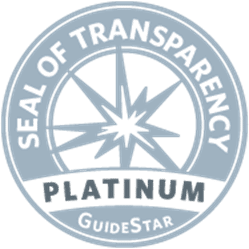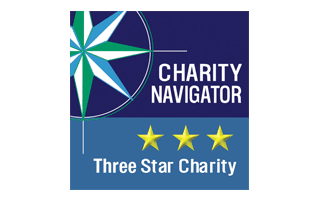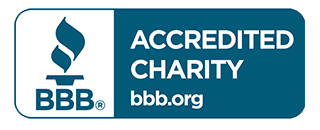Note: This article originally appeared in the Anchorage Daily News through a partnership with ConocoPhillips Alaska and is republished here with permission.
Thao Le, pictured above, who with her husband owns a “mom-and-pop” rental business in Anchorage, has found a sustainable way to give back to her community with the Landlord Housing Partnership. United Way of Anchorage photo/Trevor Jones
Presented by United Way of Anchorage
At Alaska’s winter peak, having access to a warm space and a roof over one’s head can be the difference between life or death.
But home can mean so much more than that for new renters like Adrianna. Her apartment is also a place to study, stabilize and continue a path of recovery from substance misuse, safely.
It’s also something that felt out of reach for a long time. Adrianna struggled to find an apartment that would let her rent due to her criminal record from a decade ago.
“It was so stressful before,” she said. “Looking for an apartment and getting denied time after time.”
That was until a property manager asked her if she’d consider joining the Landlord Housing Partnership — a new program from the United Way of Anchorage that connects local landlords with case managers who have clients who have recently experienced homelessness. The goal is to get homeless residents into houses quickly and keep them there, with the recognition that long-term stable housing can be transformative.
Adrianna agreed to try the program, and the Landlord Housing Partnership worked with Adrianna’s case manager to secure housing for her. Six months later, she’s still happily housed in a two-bedroom apartment in Anchorage.
:quality(70)/cloudfront-us-east-1.images.arcpublishing.com/adn/NU2DCRBPGJBDDBQQO5S7TBZX3U.jpg)
“Having a house has been extremely helpful for my life and my recovery,” she said. “It’s really worked out great for me.”
100 landlords sign up in one year: ‘I’m willing to give them a chance’
The Landlord Housing Partnership is one year old this month and is celebrating another milestone in February: It has partnered with 100 landlords.
“And we’re going to set our goals for another 100 landlords next year,” said Nancy Burke, a special assistant for COVID-19 and housing support for United Way of Anchorage.
The program works like this: United Way has a list of Anchorage landlords who post their open units to the program’s website. When a client comes in, case managers can make a match. The program currently is only working with social service agencies helping people who are leaving shelters. Future plans may provide wider access to people needing a landlord connection.
Partner landlords are rewarded with lease-signing incentives like a $1,000 bonus per lease. When they work with tenants who have experienced barriers to housing, including criminal records, those bonuses are larger, at $1,500 per lease.
“That little incentive for the landlord helps allay some of their fears,” Burke said. “It just gives them a bit of a financial cushion that can help them take more of a risk with a new tenant.”
Joe Pottinger is one of the landlords on United Way’s list and is looking forward to turning a third property into a rentable unit through the program come spring.
He said the financial boost, coupled with the fact that tenants are provided social service resources, give him peace of mind when he’s renting his units.
“People going through the agency, they’re trying to recover,” he said. “They’re attempting to make a better person of themselves. So, I’m willing to give them a chance.”
Pottinger is also assured by the risk mitigation fund — an additional incentive United Way set up through a grant from the Municipality of Anchorage to address the common concern landlords have that tenants could damage their properties. The fund will cover up to $2,500 in repairs to damaged units.
On top of all the incentives, Pottinger said, it’s just easier than finding a tenant himself. With the partnership, he doesn’t need to place advertisements or sift through clients.
“It’s been very peaceful,” he said. “The people with the partnership really handled everything.”
Neighbors helping neighbors
In Anchorage’s tight housing market, finding a place to rent can be a challenge. That process is even more difficult for tenants with criminal backgrounds or bad credit histories, whose applications landlords often pass over.
But Burke said the landlords who sign onto the partnership, like Heidi Clifford, are looking to help people who are most at risk.
As an occupational therapist and a mother of two sons with special needs, Clifford said she understands how challenging living independently can be for some adults. She’s helped tenants get groceries, open bank accounts and navigate other aspects of day-to-day life.
“I really want to keep doing things for people,” she said. “I want to do things for the community. And I’m really excited about this program.”
Clifford owns an eight-plex in Anchorage’s Mountain View neighborhood. She’s going to start renting out her units through the program this year.
She envisions a living situation where neighbors come together to take care of the space, “which would give a community feel to it,” Clifford said.
For Thao Le, who runs what she calls a “mom-and-pop” landlord business with her husband, it’s all about giving back to the community that’s given to her.
“I’m an immigrant, and I grew up in a very low-income family,” Le said. “So, we did receive help from a lot of sectors.”
Le said it was hard to figure out how to give back sustainably before. Finding tenants who were good matches was difficult, and fixing damages was expensive, especially when an eviction became necessary. Navigating the court system is both intimidating and expensive.
The program helps reduce evictions by promoting communication among the landlord, the tenant, and social services partners before situations escalate.
With the financial cushion from the program, Le said she’s able to work with the population she wants to serve. She rents two units through the program and wants to add a third.
“Now that I’m able to own property and possibly give back, I do want to give back in that way,” she said. “I want to work with people that are down on their luck but willing to follow the rules.”
Getting tenants into stable housing is one thing. Keeping them there is another.
The Landlord Housing Partnership incentivizes long-term matches with additional bonuses for landlords after three months. Burke said that’s to encourage long-term stability, so clients don’t end up back on the streets.
“We want everybody to think about this as a good match,” Burke said. “But we know sometimes people who are transitioning out of homelessness or who have been away from housing for a bit need extra support.”
That stability has meant a lot to Adrianna, who’s going on month six in her new place. She’s working with a case manager, celebrating three years in recovery and, this May, is graduating from school — all while having a soft place to land.
“It’s a really awesome program,” she said. “I hope a lot more people that have barriers like I do are able to get in contact with people at the program and are able to get stable housing.”
This story was sponsored by United Way of Anchorage thanks to a grant from ConocoPhillips Alaska. United Way of Anchorage serves the community as a convener, funder, sustainable changemaker, and as a service provider. If you’d like to join hands with United Way in this work and learn how you can contribute, please visit LiveUnitedAnc.Org.






Leave a Reply